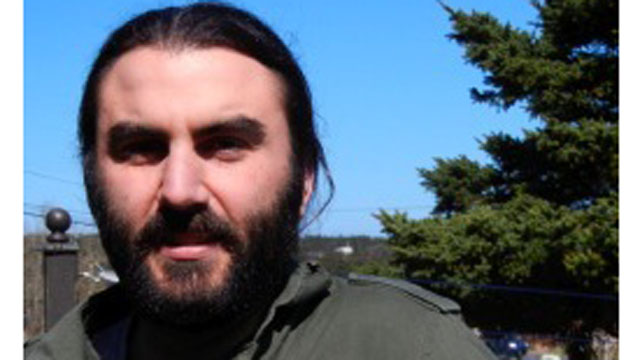(The front page of The Newfoundland and Labrador Independent. Its editor, Justin Brake was named in a court order to evict occupiers at Nalcor’s offices at Muskrat Falls)
Trina Roache
APTN National News
The lawyer for Justin Brake says the court was not made aware that he was a journalist at the time a judge expanded an injunction to include his name.
Brake, a reporter, and editor for the Newfoundland and Labrador online publication The Independent, was covering the protests over the Muskrat Falls hydroelectric project in Labrador.
“From what I’ve seen so far,” said Geoff Budden, “Nalcor did not advise the court that Justin Brake was a working journalist. We say that was a failure to provide material fact. On the basis of that failure, we wish to challenge whether the order should ever have been issued.”
Nalcor Energy, a Crown corporation in Newfoundland and Labrador, filed for an initial injunction in mid-October, as protests picked up and people blockaded the gates at Muskrat Falls.
The main concern is how the dam will impact the health and way of life of Innu and Inuit who live downstream.
On October 22, a group of land protectors cut the padlocks on the gate and marched into the Muskrat Falls site along the Lower Churchill River.

Around 50 people occupied the main Nalcor building, Brake followed and spent the next four days reporting from inside the occupation, tweeting and going Live on Facebook.
Innu elder Bart Jack was one of the people who occupied Muskrat falls camp. He called Brake’s coverage “very important” because “people were able to get the whole story from right where we were. We were able to give the atmosphere of the camp and how we were conducting ourselves.”
Jack described the occupation as peaceful and emotional. Brake’s presence put eyes on what was unfolding in real time.
“This is an example of how the underdog can get into the picture and say, ‘this is our fight,’” said Jack. “So we’re not going to give up because the opponent has all the elements in their favour to run over us.”
The occupation effectively shut down the multi-billion dollar operation for five days. Nalcor was forced to send 700 workers home and in an affidavit submitted to the court, said the occupation cost the corporation $3-million a day.
Nalcor went back to court and asked the judge to expand the injunction to include a list of 22 names and “any other persons unlawfully occupying the Project Site.”
That’s when Justin Brake appeared on the list.
“Nobody is suggesting journalists are outside the law,” said Budden. “But there’s a pretty high duty on a party seeking ex parte order to provide all material facts.”

Budden said that’s relevant because the press has certain constitutional protections. The question remains on whether the judge would have included Brake’s name knowing he was working as a journalist.
“It’s long been recognized in other contexts that a free and unrestrained press is a social good that should be promoted,” said Budden. “There are particular rights attached to press coverage that we believe the court must consider as they ultimately address Justin Brake’s situation.”
In an email response, Nalcor Energy wrote, “Mr. Brake was treated in the same manner as all individuals who chose to enter the site and take up occupation at the camp. Mr. Brake’s profession and reporting was not a consideration.”
Brake made a snap decision to follow the land protectors past the gate at Muskrat Falls and continue his coverage from inside the occupation.
“There were a lot of really newsworthy and wonderful scenes that happened in there that I think changed the narrative of how we interpret this whole project on the outside and people’s whole struggles against it, and resistance to it,” said Brake in an interview with APTN National News.
He said his coverage gave weight and perspective to the mainly Innu and Inuit, underrepresented in mainstream coverage. Brake pointed out that Call to Action number 84 of the Truth and Reconciliation Report is aimed at media.
“To fairly and accurately report on Indigenous struggles and Indigenous issues,” said Brake. “And a lot of the people in there who are Inuit and Innu who were occupying that building say they don’t feel like they’ve had a voice at all.”
Bart Jack agrees. He said the coverage shone a spotlight on the issues and concerns.
“That plays a role a different role for people who are being oppressed,” said Jack. “We are facing the oppressor and they are doing everything to make our lives miserable. But here we are, still alive and doing what we can to survive.”
Brake left the occupation when he found out his name was on the court injunction. He said he didn’t want to get arrested and not be able to cover the story at all.
The case was on the docket this week at the Supreme Court of Newfoundland and Labrador in Goose Bay where 21 people who occupied the Muskrat site appeared to face contempt of court charges.
It’s a civil charge and no one at this point is facing criminal charges. Most people a have a new court date, giving them time to seek legal advice.
Brake is back home in Newfoundland. Budden, based in St. John’s, called into the courtroom Tuesday morning on his behalf.
Brake has received support and backing from organizations like the Canadian Association of Journalists.
“We want to know why a reporter’s name was not removed from the subpoena as soon as it became apparent that he was simply following a story and telling it to his readers,” said CAJ President Nick Taylor-Vaisey. “It’s imperative that reporters be allowed to work in the public interest, as is our constitutional right.”
Brake’s next court date is December 7.
The fight against Muskrat Falls isn’t over.
Innu and Inuit land protectors in Labrador are planning to meet Tuesday evening to figure out next steps as word spread that Nalcor Energy is looking to flood the reservoir at Muskrat Falls as early as this weekend.
A study by Harvard University predicts that trees and topsoil left in the reservoir can create high levels of methylmercury. As the naturally-occurring toxin flows downstream, it could contaminate traditional food sources.
Indigenous groups in Labrador have called for Nalcor Energy to fully clear the reservoir before initial flooding.
The Premier of Newfoundland and Labrador and Indigenous leaders reached an agreement to set up an advisory committee, increase monitoring, and make scienced based decision. But that has not fully calmed concerns that important country foods like fish and seal could be poisoned.









